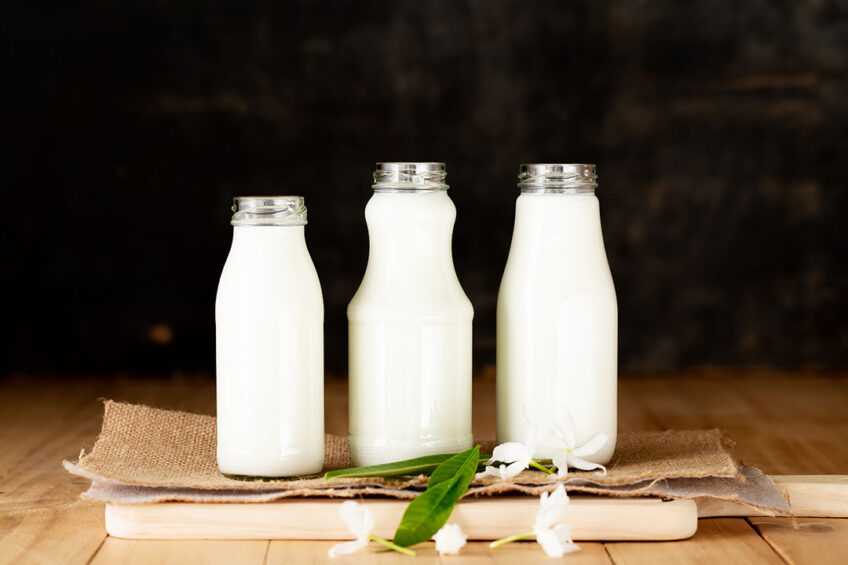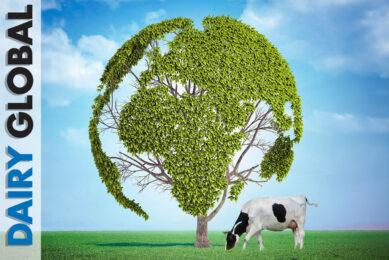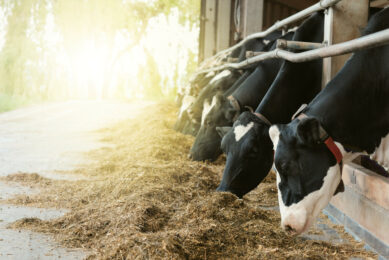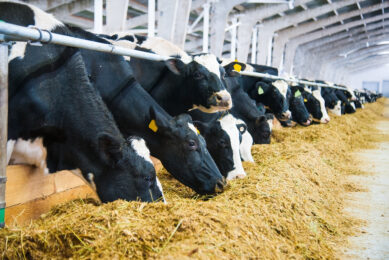Organic selenium in cow feed for dairy products

A study in Spain set out to determine the effect of dairy cow feed supplementation with inorganic plus organic selenium on milk yield, and on the selenium enrichment of milk and dairy products to obtain naturally enriched products.
Milk and dairy products, such as cheese and yogurt, can be useful sources of selenium-enriched products to increase human selenium intake. Selenium is an essential micronutrient required in trace quantities for normal growth and development of animals, and which plays an important role in many metabolic functions related to antioxidant activity. Selenium is important in human nutrition, too, and intake occurs mainly through water and food, which is linked to the concentration of selenium in the soil, though selenium deficiencies are widespread. The bioavailability of selenium strongly depends on the chemical form found in the diet.

Selenium supplements exist in 2 forms, mainly inorganic mineral salts such as sodium selenate and sodium selenite, and organic forms such as selenomethionine (SeMet). The common form used in dairy cow supplements is the less expensive inorganic sodium selenite form. However, organic selenium forms are more bioavailable and safer than inorganic forms when improving the selenium status of ruminants and could be transferred more readily to milk.
There is, therefore, considerable interest in supplementing the diets of lactating animals with organic selenium, and there are many studies that show positive results with increased levels of selenium in milk and dairy products. Most studies in this area, however, have used organic selenium levels higher than those authorised in the EU (maximum of 0.2 mg of organic selenium/kg of total ration, and total selenium (organic + inorganic) cannot exceed 0.5 mg/kg of total ration).
The study
2 groups of lactating cows were assigned to 2 feeding treatments at the Dairy Cattle Unit of Veterinary Teaching Farm at the University of Murcia. One was a control group, supplemented with inorganic selenium, and the other was supplemented with inorganic and organic selenium (IOSe). Both diets had the same base diet, with a forage-to-concentrate ratio of 52.25:47.75. In the control treatment, a source of inorganic selenium (as sodium selenite) (0.240 mg/kg dry matter (DM) of TMR) was used, and in the IOSe treatment, 60% of selenium (0.144 mg/kg DM of TMR) was incorporated as inorganic selenium (sodium selenite), and 40% (0.096 mg/kg DM of TMR) as organic selenium using Sel-Plex.
 Correctly balancing rations is key in dairy cow nutrition
Correctly balancing rations is key in dairy cow nutrition
Correctly balancing rations is key to making the most of forage this winter and an important aspect of rumen efficiency and dairy cow performance.
The results
The inclusion of inorganic plus organic selenium did not affect the yield or basic chemical composition of milk; however, the selenium content of milk was higher with inorganic plus organic selenium supplementation. Cheese from cows fed inorganic plus organic selenium had a higher selenium content, although this effect was not observed for yogurt. At a moderate level in the diet, sodium selenite plus selenium yeast may be more effective than only inorganic selenium, increasing the selenium concentration in milk and cheese.
The conclusion
The effect of inorganic plus organic selenium (as sodium selenite plus selenium yeast) supplementation of feeding dairy cows at a moderate level (within the range of EU legislation and with a wide safety margin) was more effective than sodium selenite, increasing milk selenium concentration of dairy cows by 29.7% without altering its general metabolic status, and even decreasing the total oxidant status, and showing no deterioration in terms of overall milk quality and yield. In fresh cheese obtained from sodium selenite plus selenium yeast supplementation, there was 38.2% more selenium compared to cows fed with an inorganic selenium supplementation, achieving selenium levels that are labelable as a “source of selenium”, without harming the quality of the product.
The information in this article has been extracted from an article in MDPI.
Join 13,000+ subscribers
Subscribe to our newsletter to stay updated about all the need-to-know content in the dairy sector, two times a week.










